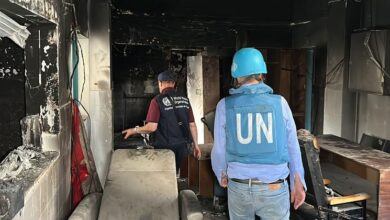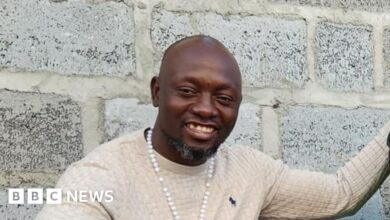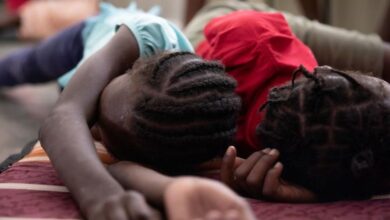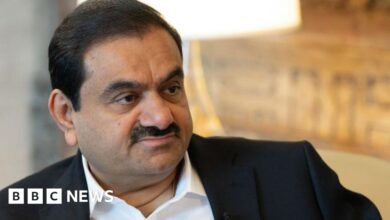Gaza: WHO chief hails ‘tremendous success’ of polio campaign amid tragic reality
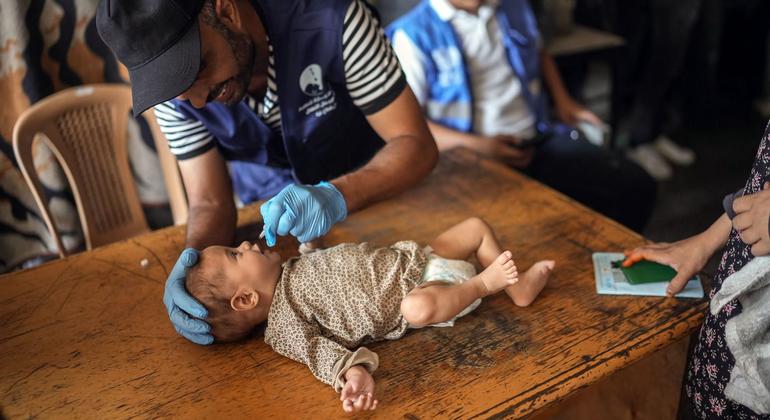

WHO leader Tedros Adhanom Ghebreyesus tweeted that it has been “a huge success amidst the tragic daily realities of life” for the more than two million people of Gaza who have been caught in the fierce fighting since a Hamas terrorist attack last October sparked the war in Gaza.
Over three phases spanning twelve days, from 1 to 12 September, UN agencies and partners delivered the new oral polio vaccine type 2 (nOPV2) to an estimated 558,963 children, to families living in shelters, tents and refugee camps for displaced people.
Richard Peeperkorn, WHO Representative in the Occupied Palestinian Territory, welcomed “incredible resilience” of health workers and communities in conducting operations “at unprecedented scale and speed under the most atrocious conditions” in war-torn territory.
“The rapid action of the Global Polio Eradication Initiative – from the discovery of the virus to the launch of the vaccination campaign – shows the effectiveness of the polio control program,” he said. speak.
Peaceful moments
For each phase – central, southern and northern Gaza – a nine-hour daily area-specific humanitarian pause has been agreed to ensure the safety of communities and health workers, as well as facilitate vaccination efforts.
“In areas where humanitarian pauses are occurring, the campaign is not only delivering vaccines but also providing moments of peace,” said Dr Peeperkorn.
“As we prepare for the next round in four weeks, we hope these pauses will be maintained.because this campaign has shown the world what can happen when peace is given a chance,” he added.
The second round will provide a second dose of nOPV2 vaccine to children in Gaza to contain the outbreak and prevent international spread.
Although the program faced challenges such as damaged roads and medical facilities, accessibility issues, limited fuel, lack of trained medical staff, and constant population displacement, these issues were promptly addressed with the support of the Palestinian Ministry of Health and the United Nations Relief and Works Agency (UNRWA).
Unfinished business
Jean Gough, United Nations Children’s Fund (UNICEF) The representative of Palestine welcomed the progress made in the first round, stressing that “the work is far from done”.
“We are ready to deliver and urge all those involved to ensure we can deliver in the next four weeks, for the benefit of children everywhere,” she said.
To reach enough children and successfully halt the transmission of the polio virus, WHO, UNICEF and UNRWA have called on all parties to the conflict to commit to another humanitarian pause, while ensuring unhindered access to children in areas that require special coordination.
Initial goal
WHO notes that the campaign’s initial target – 640,000 children – is Estimated without accurate survey and may have overestimateddue to displacement and ongoing conflict.
The agency added that 65 additional independent monitors are being deployed to cross-check the rate of child vaccination across the Gaza Strip to independently assess the coverage achieved in the first round.
They need safe, unhindered access to households, markets, transit points and health facilities to check whether children have the prominent purple mark on their little fingers when vaccinated, the report added.
These efforts will provide independent measures of vaccination coverage achieved and the number of children missed.
UNRWA staff killed in West Bank
However, the ongoing conflict continues to claim civilian lives, displacing thousands and destroying civilian homes and infrastructure. The UN has also lost more than 220 UNRWA staff – killed in an Israeli offensive following the October 7 terrorist attacks by Hamas and other militants.
On Thursday, UNRWA lost another staff member, who was killed at El Far’a Camp, in the northern West Bank – the first killing in the area in more than a decade.
The employee, a sanitation worker, was shot dead on his roof by a sniper during an early morning Israeli military operation, the agency said. He is survived by his wife and five children.
“This is the first time a UNRWA staff member has been killed in the West Bank in more than ten years. It comes at a time when the West Bank is experiencing unprecedented levels of violence, putting communities at risk,” Roland Friedrich, UNRWA’s Director of Affairs in the West Bank, said in a statement. declare.
He noted that Israel’s prolonged military operations, particularly affecting the El Far’a, Tulkarm, Nur Shams and Jenin refugee camps, had forced UNRWA to suspend refugee services “due to the unacceptable risk to staff and beneficiaries during these operations”.
Mr. Friedrich also expressed concern about the use of improvised explosive devices (IEDs) by Palestinian militants.

